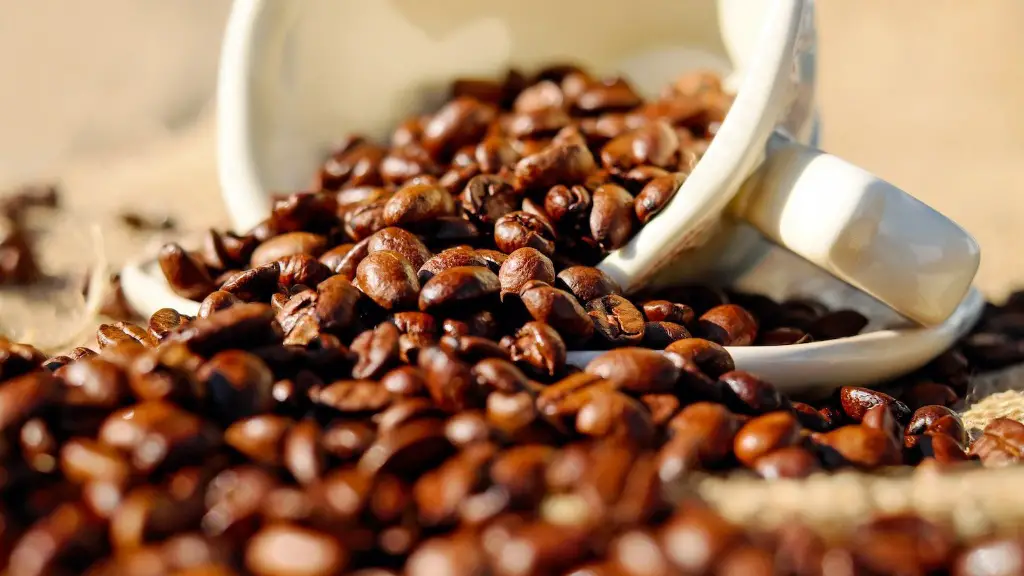What Causes Coffee Headaches
When it comes to coffee and headaches, there is still much debate among experts regarding the connection between the two. In recent years, many studies have looked into the potential link between caffeine intake and headaches. The two are often seen as an inseparable combination, so it is no surprise that the connection between the two is a popular topic of conversation.
Coffee is one of the most widely consumed beverages worldwide. It contains nutrients and stimulants like caffeine, which has been linked to various health benefits. Caffeine is a central nervous system stimulant, meaning it can raise the heart rate and blood pressure, increasing alertness and concentration. However, it also has some potential downsides, such as jitteriness, anxiety, and increased urination.
Caffeine may have both good and bad effects on people. It is believed to be a potential cause of headaches, but research is not conclusive about this link. Some studies suggest that caffeine consumption may lead to headaches in some people, while others have found little to no association. It is not clear why the connection between caffeine and headaches is not clear.
One study revealed that caffeine headache was only reported by people who had a lower tolerance for caffeine. This suggests that people who have a high tolerance for caffeine may be less likely to experience caffeine headaches. It is worth noting, however, that even coffee drinkers with high tolerance might experience coffee headaches as a result of overconsumption.
What Factors Increase the Risk of Coffee Headaches
As mentioned, there is no clear evidence that caffeine causes headaches in all individuals. However, there are certain factors that can increase the risk of headache in people who are prone to them. These include:
• Caffeine withdrawal: When someone is used to drinking caffeine, stopping suddenly can lead to a caffeine withdrawal headache. This is commonly known as “caffeine crash”.
• Over-caffeination: Caffeine has a dose-dependent effect, meaning that more caffeine leads to more intense effects. As such, over-intake of caffeine can lead to headache.
• Drinking coffee on an empty stomach: Coffee is acidic, which can have an additional effect on an empty stomach.
• Drinking too much coffee too quickly: Making a habit of drinking too much coffee too quickly can shock the body and lead to a headache.
Preventing Coffee Headaches
People who are prone to experiencing coffee headaches should be aware of the factors that could trigger them. Generally speaking, it’s not recommended to drink more than 400 milligrams of caffeine in one day. To ensure that your daily dose remains within that limit, consider these tips:
• Keep track of your caffeine intake: Caffeine is found in many common foods and beverages, such as tea and soft drinks. One 12-ounce (355ml) cup of coffee contains 95 milligrams of caffeine, so it’s important to keep track of how much you’re consuming throughout the day.
• Limit your consumption: Consider switching to a lower-caffeine coffee, choosing decaffeinated options, or drinking coffee only in moderation.
• Consume your coffee more slowly: It may be tempting to gulp down coffee, but slow and steady consumption can help mitigate the potential for a headache.
Alternative Beverages for People Prone to Coffee Headaches
For those prone to coffee headaches, there are plenty of caffeine-free beverages and snacks available. These include:
• Herbal teas: Many herbal teas can provide a pleasantly rich flavor without caffeine.
• Hot chocolate: For a rich, sweet flavor, many turn to hot chocolate.
• Green tea: Green tea has less caffeine than coffee and can provide a host of health benefits.
• Fruits and vegetables: Fruits and vegetables can be a great source of vitamins and minerals without any caffeine.
• Non-caffeinated soft drinks: There are a variety of soft drinks available without caffeine.
Potential Health Benefits of Caffeine-free Beverages
While caffeine-free beverages offer some advantages in avoiding coffee headaches, they may also offer some health benefits. For example, herbal teas and hot chocolate can help support positive moods while green tea is full of antioxidants. And, if you’re looking for a pick-me-up, non-caffeinated soft drinks may provide a boost of energy with added nutrients. Additionally, consuming more fruits and veggies can help provide essential vitamins and minerals such as Vitamin C, magnesium, and potassium.
Coffee Alternatives that Contain Caffeine
In addition to the previously mentioned caffeine-free beverages, there are also plenty of beverages which contain caffeine but may be less likely to cause coffee headaches. These include:
• Black tea
• Matcha
• Yerba mate
• Chicory root
• Dandelion root
• Rooibos tea
• Golden milk
• Cacao
These beverages often have less caffeine than coffee and can provide a different flavor. Because of this, it can be more enjoyable for those who experience headaches from coffee.
Potential Benefits of Moderately Consuming Coffee
Even though drinking large amounts of coffee may trigger headaches in some people, it’s important to consider the potential benefits of moderate consumption. Coffee can provide energy and mental alertness, which can be beneficial when done in moderation. Additionally, it can provide antioxidants and other nutrients which may have positive health benefits.
However, it’s important that people who are prone to headaches from coffee should be mindful of how much they are consuming and opt for alternative beverages when possible.
Eating and Enjoyment Habits that Might Reduce Coffee Headaches
When it comes to reducing the likelihood of headache from coffee drinks, certain eating habits may be beneficial. Drinking a full glass of water when consuming coffee may help rehydrate the body and prevent dehydration headaches. In addition, eating a type of food prior to drinking can slow the absorption of the caffeine. This can provide a more even release of energy and alertness over a longer period of time, reducing the chance of a headache. Finally, enjoying the flavor of the beverage without rushing is also beneficial for reducing the likelihood of a headache.
Stress and Caffeine Headaches
Stress can also play a role in coffee headaches. One study found that people who experienced more stress were more likely to experience the headaches. As such, it’s important to take time to unwind and relax when drinking coffee. Taking a few deep breaths and meditating before consuming the beverage can help to manage levels of stress.
In summary, while there is still debate among experts regarding the link between headaches and coffee, it is important to be aware of the factors that may increase the likelihood of a coffee headache. Keeping track of caffeine intake, limiting it, and drinking coffee more slowly can help to reduce the risk. If someone is prone to coffee headaches, switching to other beverages or drinking coffee in moderation can be beneficial. Finally, it is important to manage stress levels to reduce the likelihood of a caffeine-induced headache.


